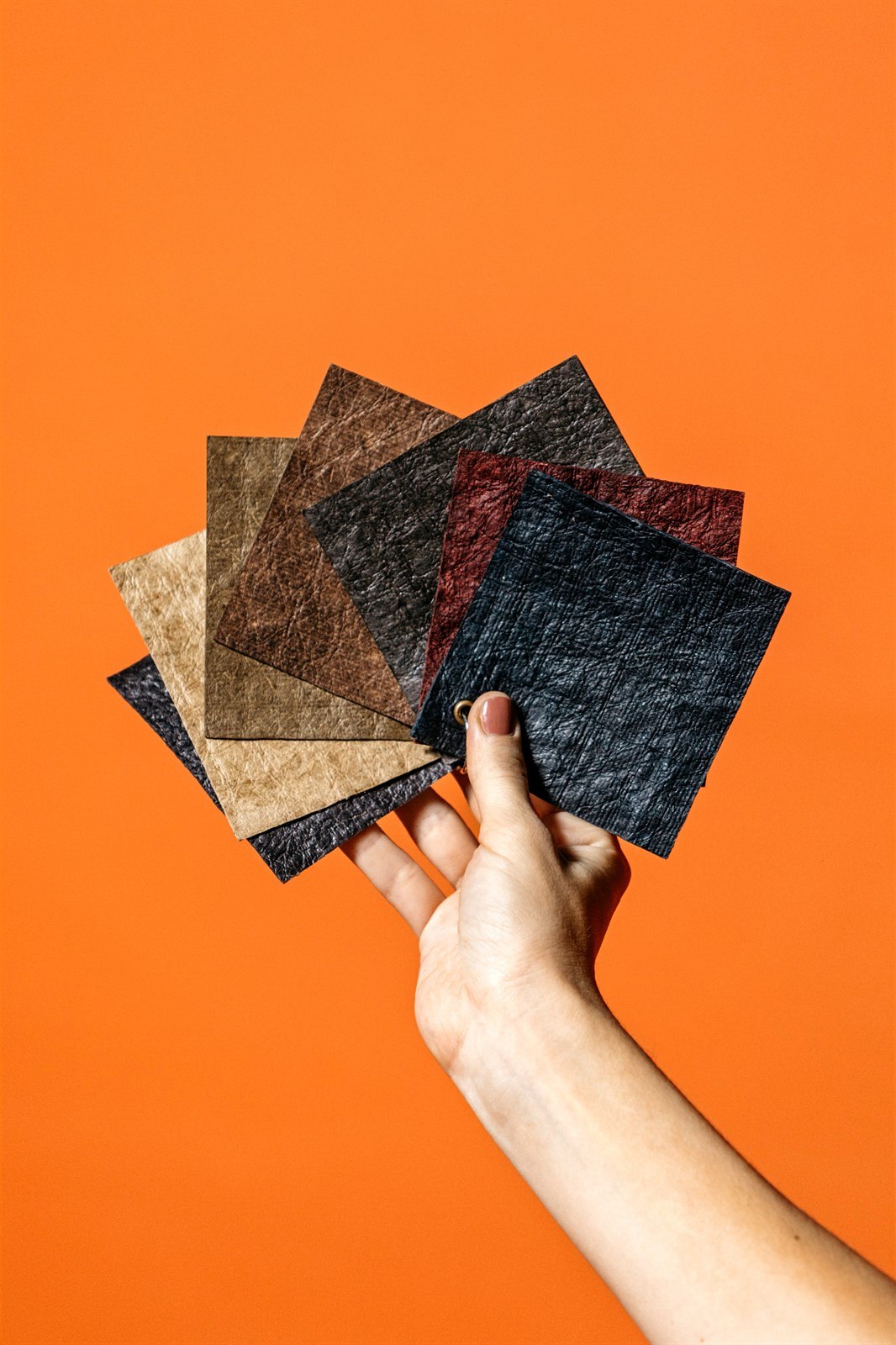
The world has become much more conscious about well-being than it ever was. Bohemians have started to believe in freshly made juices to give a better high than consuming alcohol or smoking pot. Everybody believes that one must do things to protect the planet. Being sustainable is the new mantra, an important milestone for the creative club. This feeling of responsibility towards one’s surroundings and oneself is escalating quickly and effecting change in practices around the world.
A material engineer based in Kerala introduces us with his way around with materials, that is almost poetic. Susmith’s first stint in the maintenance department of a company lasted only until he believed that products designed better would need less maintenance; leading him to switch and work as a part of a product design team. Realisation dawned that a product performs better if its very base, the material it is made up of, is of a certain calibre.
He, along with Zuzana, a Slovakian designer, co-founded Malai, a completely biodegradable material made with ingredients of a coconut. A bio-composite material, ‘Malai’ refers to the creamy flesh of a coconut and its water that sustains the bacteria that grows cellulose, the primary constituent of this material.
One of the first in India, the material aims to become a safer substitute for leather, a product of the industry that brings high foreign exchange in India — that is the second largest producer of leather products in the world, at the cost of severe damage to the environment.
“Vegan is a word that gets tossed around these days”, interjects Susmith. According to him, polyurethane and polyvinylchloride based vegan leather is a hit in the market being an easy alternative to animal leather. However, in the midst of stockpiling toxic layers of this plastic material, much thought has not been given to how it affects the ecology while it is being made and after it is discarded.
“Processes like chrome tanning in a standard leather industry, that are highly toxic in itself make the leather stronger and long lasting (40-50 years). But do we really need these properties in a product that we use for some 2-3 years? The ill-advised efforts to make the material stronger are not even required in these times of consumerism. A company may design a good product but any compromises on its material or the processes involved will critically degrade it’s quality, suggests Susmith.
It is mostly the small- scale companies in India interested in using eco-friendly materials who have approached the studio with queries regarding the material. More often than not, the deal doesn’t move forward as the cost isn’t low enough for these manufacturers to do good business. Susmith agrees that it’s understandable for manufacturers to worry about cost but falling back on cheap alternatives doesn’t help the environment.
But what makes this material an expensive indulgence? It is Malai’s extensive utilisation of resources like Bacterial Cellulose grown from coconut water. “To give an idea, we need water from 150-200 coconuts for every meter square of Malai”, elaborates Susmith. Since the natural polymer is also grown using static cultures, the studio is in the middle of developing a bio reactor that will help expand its production. Nonetheless, the production of sheets shall remain a manual routine as, “we do not want to mechanise the process to an extend that the material looses its human or handmade aspect,”he says.
It is his belief that majority of population in India would consider the cheapest option available that serves the intended purpose, when it comes to making choices. “Convenience is what dictates material use as we seldom use the right material for the right application. It is always more convenient to buy a bottle of water than carry one from home, it is more convenient to get a bag from the shop than carry one, it is convenient not to segregate the waste, and so on.”
Little awareness among people regarding consequences of certain materials leads them to hoard plastic in their bins. A Malai product decomposes in 90 days as compared to 50 years for leather and 500 years to forever for plastic bags. With such extended timelines, it is essential to choose products that do not end up in our oceans.
“It’s wrong to expect people troubled by trivial matters such as Swacch Bharat to be a conscious buyer. The responsibility thus lies with the manufactures of products, designers and to a larger extent with our policy makers”, adds Susmith.
Malai is a composite of materials like fibre from banana and hemp fibres that are fast renewing materials and the matrix, bacterial cellulose has surface properties make it an excellent binder, other ingredients being natural resin, gum, dyes and oils for flexibility and water resistance.
“Think of any good property one wants in a material, Malai’s got it. It is vegan, sustainable, breathable, food-grade (one can actually eat it), ethically made, renewable, compostable, lowest embodied energy, water resistant, easy to maintain and durable.”
The studio is open for collaboration with manufacturers and designers who are looking at making bags, wallets, clutches, pouches, etc. At the moment, the studio is working on the next stage of development where it is being tested for footwear and furniture use. “Our idea is to develop the right material for the right application and thus we have assigned stages of development to the material,” concludes Susmith.
Youth shot dead by bike-borne attackers while returning from marriage function; police recover cartridges, begin…
Arunachal women allege racial slurs and humiliation by neighbours over repair work dispute; police register…
The magistrate said the probe reveals that multiple associates could be absconding, which could tamper…
The cylinder blast injured six police and fire personnel deployed at the house where a…
Multiple operational teams have been deployed to probe the case. Crime and Forensic Science Laboratory…
The initiative focused on a victim-centric approach and aimed at strengthening public trust through proactive…